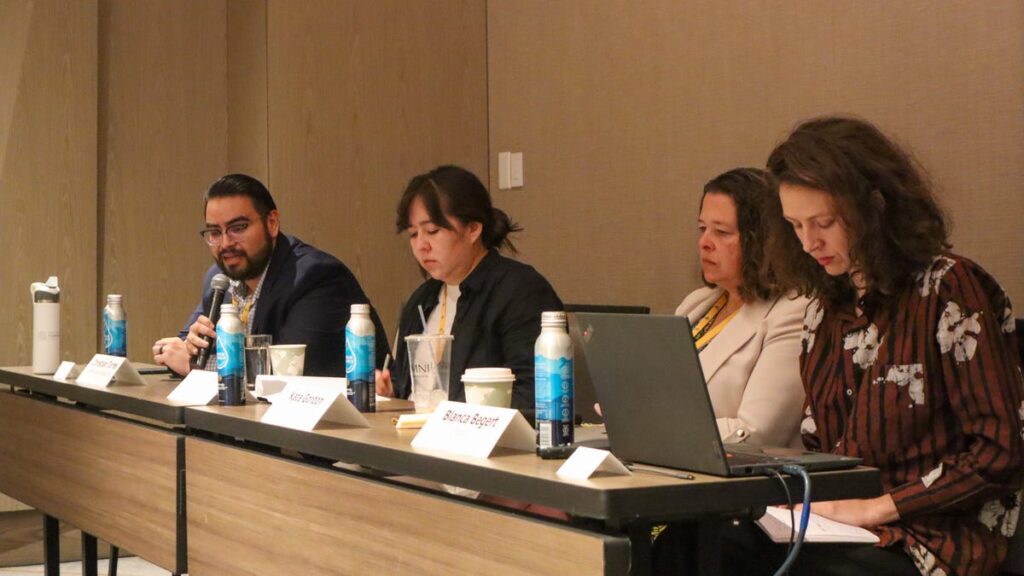In the evolving landscape of clean energy development, the interaction between developers and local communities often falls short of expectations, leaving both parties at a disadvantage. Insights shared by experts at a recent Society of Environmental Journalists conference in Tempe suggest a need for reimagining these negotiations to harness real benefits.
During the conference on April 26, panelists emphasized that broadening the scope of discussions beyond the typical focus on labor and emissions could significantly impact local communities’ understanding and involvement in clean energy projects.
Broadening the Scope of Negotiations
Kate Gordon, CEO of California Forward, highlighted the importance of considering the tax base in agreements between communities and corporations, suggesting that a narrow focus on labor and emissions might overlook crucial community factors.
- Jessica Keetso, formerly of Tó Nizhóní Ání, pointed out the potential of offtake agreements, which allow communities to purchase a portion of the resources generated by developers, such as energy and water. This is particularly significant for the Navajo Nation, where approximately 30% of residents lack access to running water, according to the Navajo Water Project.
The Reality of ‘Clean’ Energy
Gordon also cautioned against the oversimplified labeling of energy projects as “clean,” noting that such claims might overlook environmental impacts that are outsourced beyond U.S. borders.
- Christian Torres from Comite Civico Del Valle expressed concerns about how geothermal and lithium projects in Lithium Valley are marketed as clean, despite not disclosing their waste streams. “It’s cleaner… than putting coal plants to generate energy, but it’s not clean completely,” Torres explained.
Ensuring Accountability
Gordon stressed the need for enforceable and transparent community benefit agreements to ensure communities understand what they stand to gain from allowing development projects.
- Torres recalled the fleeting nature of job opportunities in Lithium Valley, where solar energy projects that promised long-term employment lasted only a year. “We don’t want them to be promising things, and they’re not delivering,” he said.
Rethinking Resource Extraction
To foster better cooperation with communities, Gordon proposed that companies should consider becoming public benefit corporations.
- Keetso mentioned that employing tribal liaisons can sometimes create division rather than unity. Instead, Gordon advocated for a community advisory group model, engaging community members in decision-making processes rather than just advising.
- She also suggested the U.S. could learn from Canada’s agreements with First Nations, where communities receive 50% equity in some projects. “All these systems were created for a stable climate, which we don’t have anymore,” Gordon remarked.
George Headley is the politics editor at The State Press at Arizona State University, participating in a student newsroom led by The Arizona Republic.
Coverage of the Society of Environmental Journalists conference is supported by Arizona State University’s Cronkite School of Journalism, the University of Arizona, the Nina Mason Pulliam Charitable Trust, and the Arizona Media Association.
These stories are published open-source for other news outlets and organizations to share and republish, with credit and links to azcentral.com.
Original Story at www.azcentral.com
